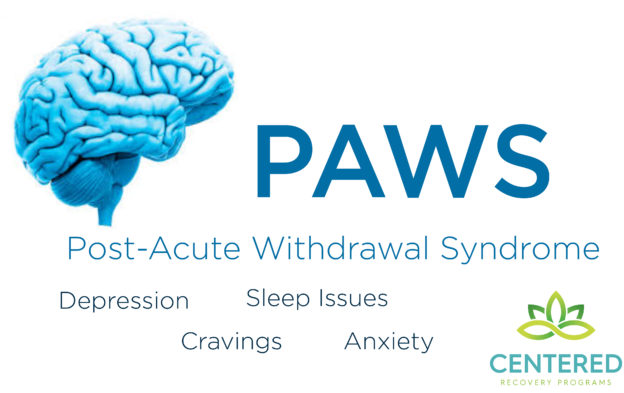What is PAWS?
At first glance, you might think we are referring to our furry friends’ feet. Not quite. PAWS stands for post-acute withdrawal syndrome and is not to be confused with acute withdrawal. So how does PAWS affect recovery?
What’s the Difference Between Acute Withdrawal and PAWS?
Acute withdrawal is the initial symptoms felt during the detox period of sobriety that might last anywhere between a few days and a couple of weeks. You might have experienced tremors, fever, vomiting, diarrhea, lethargy, or an inability to sleep, depending on the drug you detoxed from. The length of time that withdrawal symptoms are experienced depends on how long the drug was taken. These physical symptoms characterize acute withdrawal.
PAWS occurs after the acute withdrawal sometimes weeks or a couple of months after detox. Symptoms may last up to two years after the substance was stopped (Hartney, 2020). Unlike acute withdrawal, PAWS symptoms are not physical.
Commons PAWS Symptoms
Like acute withdrawal, the symptoms in PAWS can vary in severity and length (Mager, 2020). Interestingly, symptoms can disappear, only to reappear later (Semel Institute. UCLA, n.d.). Some of the common symptoms of PAWS are:
- Cognitive difficulty like learning, problem-solving, memory recall
- Irritability
- Feeling anxious or panicked
- Depressed mood
Other symptoms can include:
- Obsessive-compulsive behaviors
- Difficulty maintaining social relationships
- Increase in craving substance originally used
- Apathy or pessimism
- Sleep pattern disturbances
- Increased sensitivity to stress
What Causes Symptoms of PAWS?
Experts believe that there could be several different reasons one might experience PAWS. One reason is that the brain is trying to reset itself back to “normal” after the person has stopped using drugs. This process of the mind resetting itself takes time, which could mean a person might have cravings, feel exhausted, or experience mood swings. Another reason might be the stress associated with early recovery could lead to experiencing PAWS as they adjust to life without using.
If you’re interested in learning more about PAWS, call us now at 800.556.2966 for more information about Centered Recovery.
Susan Sanchez, MS, MSW Student
References
Hartney, E. (2020, March 24). Post-acute withdrawal syndrome after detoxing. Verywell Mind. https://www.verywellmind.com/what-is-post-acute-withdrawal-syndrome-22104
Mager, D. (2015, May 26). Detoxing after detox: The perils of post-acute withdrawal. Psychology Today.
Semel Institute. UCLA. (n.d.). Post-acute withdrawal syndrome (PAWS). University of California Los Angeles. https://www.semel.ucla.edu/dual-diagnosis-program/News_and_Resources/PAWS






